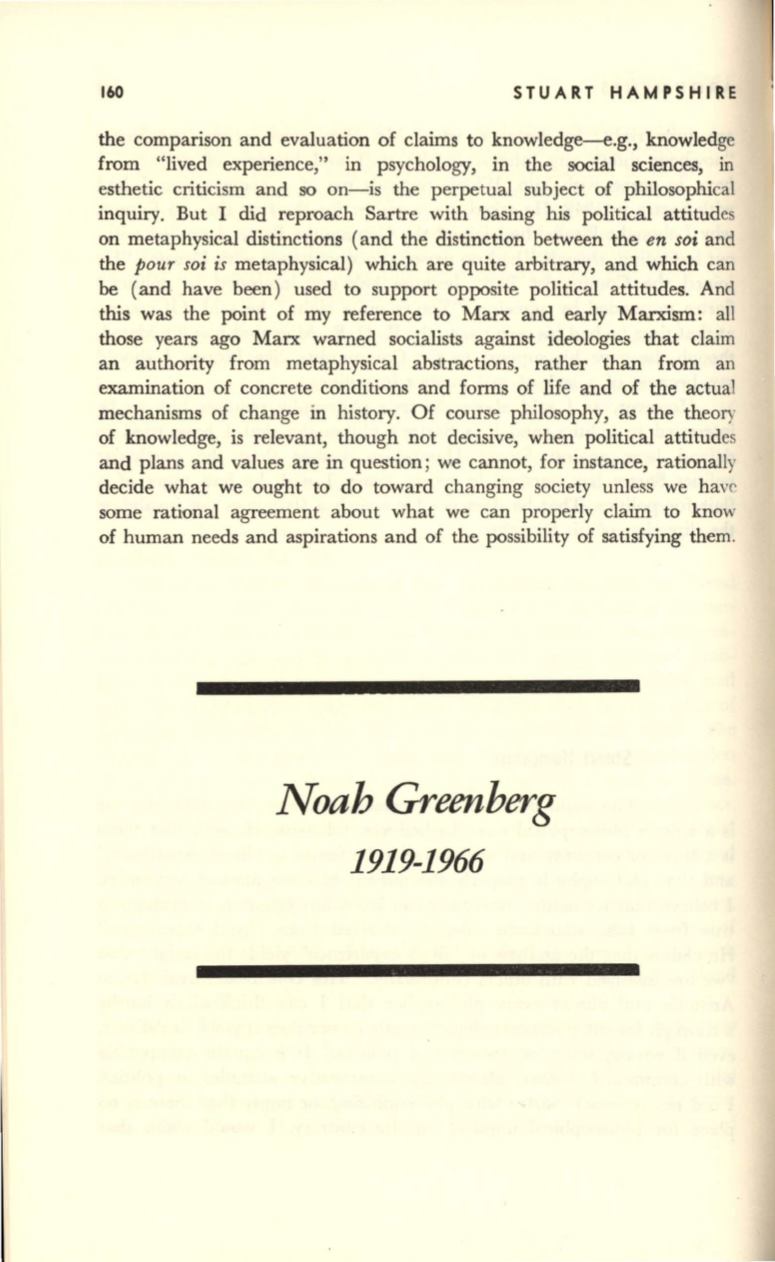
160
STUART HAMPSHIRE
the comparison and evaluation of claims to knowledge-e.g., knowledge
from "lived experience," in psychology, in the social sciences, in
esthetic criticism and so on-is the perpetual subject of philosophical
inquiry. But I did reproach Sartre with basing his political attitudes
on metaphysical distinctions (and the distinction between the
en soi
and
the
pour soi is
metaphysical) which are quite arbitrary, and which can
be
(and have been) used to support opposite political attitudes. And
this was the point of my reference to Marx and early Marxism: all
those years ago Marx warned socialists against ideologies that claim
an authority from metaphysical abstractions, rather than from an
examination of concrete conditions and forms of life and of the actual
mechanisms of change in history. Of course philosophy, as the theory
of knowledge, is relevant, though not decisive, when political attitudes
and plans and values are in question; we cannot, for instance, rationally
decide what we ought to do toward changing society unless we have
some rational agreement about what we can properly claim to know
of human needs and aspirations and of the possibility of satisfying them.
Noah Greenberg
1919-1966


